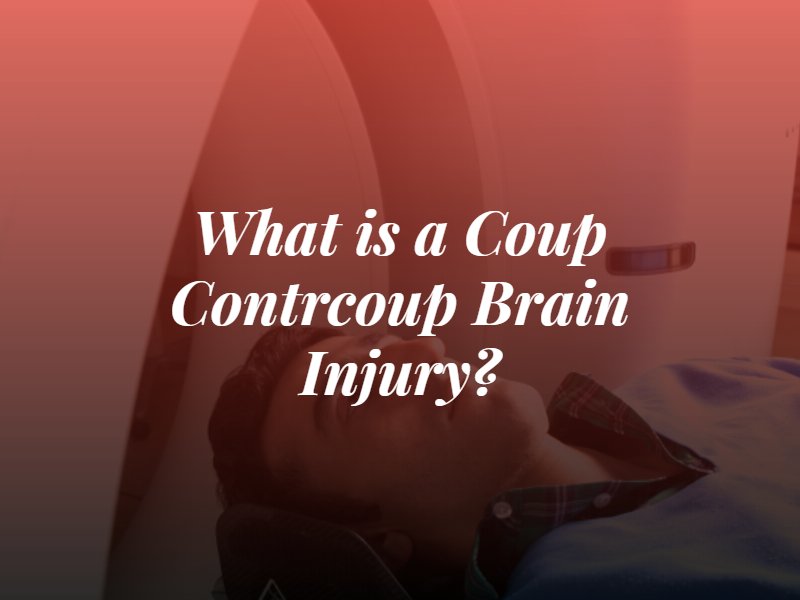What Is a Coup-Contrecoup Brain Injury?
Published in Brain Injury on June 10, 2020
Reading Time: 3 minutes
Brain injuries are some of the most serious injury types involved in accidents in Boston. Any injury the brain sustains could have a significant impact on the victim’s daily life. From expensive medical treatments to symptoms that affect movement, thought and speech, a brain injury can be life-changing. One possible type of brain injury during accidents such as slip and falls and car crashes is a coup-contrecoup brain injury.

Common Symptoms of a Coup-Contrecoup Brain Injury
A physician might diagnose a patient with a coup-contrecoup brain injury after an accident or traumatic event that causes a blow to the head. If the impact caused the victim’s brain to strike one side of the skull, bounce off the inner wall, and strike the opposite side of the skull, the victim may have a coup-contrecoup injury. This type of brain injury is a contusion or bruise, that occurs at both the point of impact and the opposite side of the brain. It is a closed-head injury that can occur in many different types of accidents. The symptoms of a coup-contrecoup brain injury can be numerous and varied.
- Nausea or vomiting
- Dizziness
- Blurred vision
- Headaches
- Confusion or disorientation
- Memory loss
- Impaired concentration
- Muscle weakness
- Trouble sleeping
- Personality or behavioral changes
- Depression or anxiety
- Loss of consciousness or coma
Diagnosing a coup-contrecoup brain injury often requires an imaging scan of the brain, such as a CT scan or MRI. Coup-contrecoup injuries are serious and require immediate treatment. If not diagnosed and treated promptly, the victim could suffer long-term symptoms and health complications, including the risk of permanent brain damage. Treatments may include surgery, bed rest, therapies and medications. The cost of health care for a coup-contrecoup injury could reach several thousand dollars for a victim.
What Causes Coup-Contrecoup Brain Injuries?
Coup-contrecoup contusions and other types of brain injuries are most common in accidents involving trauma to the head. Hitting one’s head on a hard surface, an object striking the skull, or a bullet or knife penetrating the skull could all cause traumatic brain injuries. Coup-contrecoup injuries, specifically, are most common in accidents that whip the head and neck rapidly back and forth, causing the brain to hit one side of the skull and then the other.
- Car and truck accidents
- Motorcycle and bicycle accidents
- Pedestrian collisions
- Sports impacts and accidents
- Diving accidents
- Falls
- Acts of violence/assault
- Shaken Baby Syndrome
Negligence causes most of these accidents in Boston. Negligence refers to someone’s failure to exercise a reasonable degree of care for the safety and health of others. Someone texting while driving, for example, could crash into the rear of another driver, causing the victim to hit his or her head. If negligence causes a coup-contrecoup brain injury in Boston, the victim or his or her family members could file a claim seeking damages.
How to Hold Someone Responsible for a Coup-Contrecoup Brain Injury
Brain injuries can cost victims thousands of dollars in lost earnings, medical expenses, long-term treatments, live-in care and disability expenses. They can also cause immeasurable physical pain and emotional suffering. If you or someone you love has a coup-contrecoup brain injury in Boston, you may have grounds to bring a civil lawsuit. A civil suit seeks to hold one or more parties legally responsible for causing a plaintiff’s injuries or losses.
A successful brain injury suit could force a negligent or reckless party to pay you for damages such as past and future health care costs, lost income, travel costs, legal expenses, pain and suffering, mental anguish, and punitive damages. You or your lawyer will need to prove the defendant’s duty to exercise care, breach of this duty, responsibility for causing your brain injury and your related damages to obtain compensation. Working with an experienced personal injury lawyer in Boston can improve your chances of securing fair results for you or a loved one’s coup-contrecoup brain injury.
For more information, call our law office at (617)-391-9001. Or if you would prefer to email us, then please visit our contact page.
Comments are closed.










